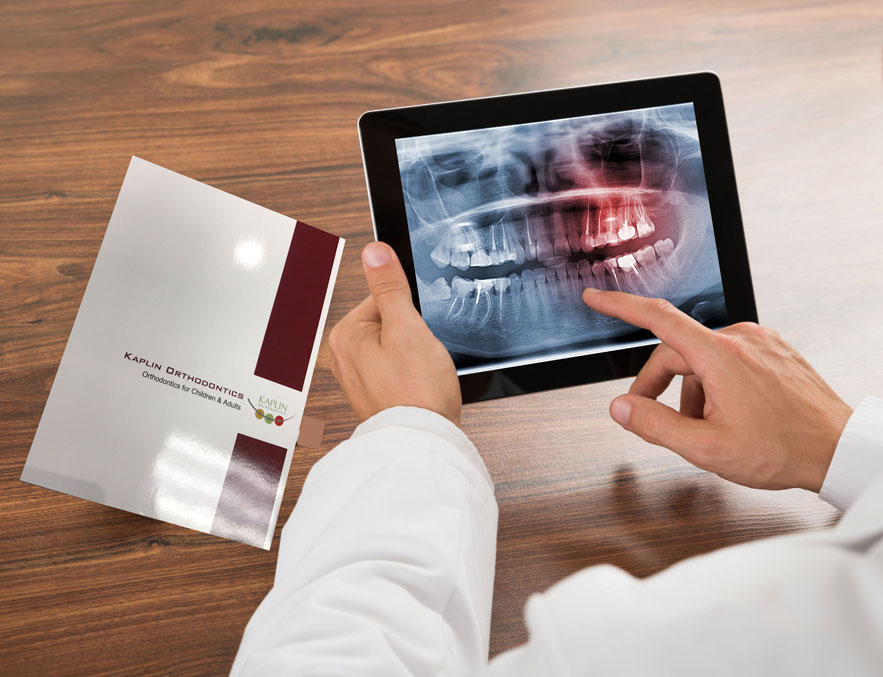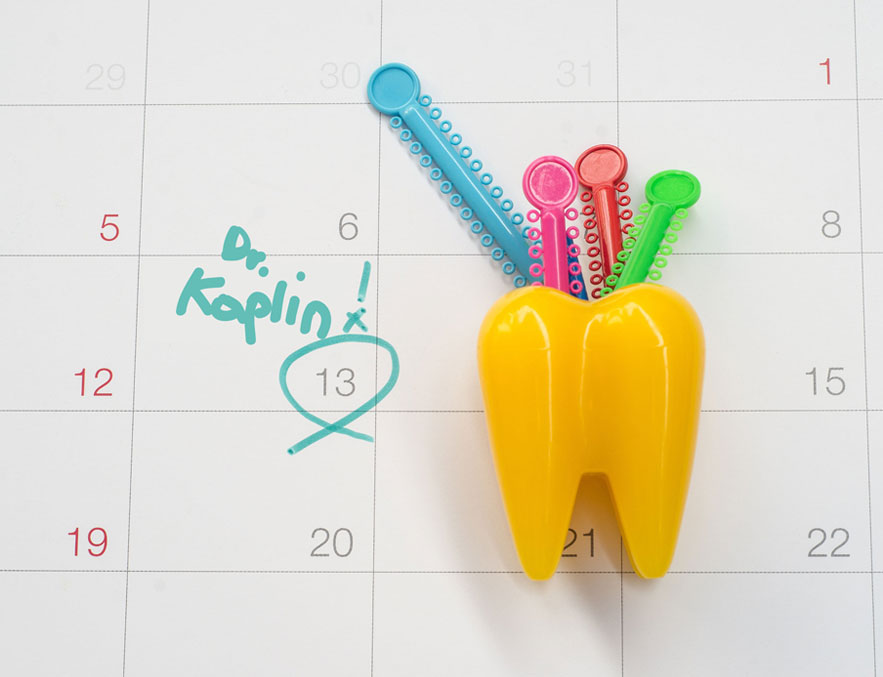Flossing With Braces: Misconception
Many children and teens (and some adults) don’t know how to floss with braces. Or they think that they can’t floss at all if they have braces. But that’s not the case. In fact, daily flossing is especially important during the time that you wear braces because you’re more likely to have food particles trapped in the braces, bands and wires, which could increase your risk of a cavity if the food contains carbohydrates (sugars).
Time Matters
Be prepared to spend three times as long on your oral care while you have braces on your teeth. Don’t worry, it’s worth the time-if you don’t pay attention to oral hygiene while your teeth are being realigned, you increase your risk of gum disease. Plus, it can help your teeth look that much better when it’s finally time to get your braces removed.
Steps To Follow When Flossing With Braces
Although flossing with braces is tricky, you can get the hang of it with practice if you follow these steps:
Use waxed floss (unwaxed floss is more likely to get caught and shred in your braces), dental tape or a product specifically designed to clean around your braces, like the Oral-BÆ Orthodontic Brush. About 18 inches of floss should suffice. Use Floss Threader which is designed to assist you in threading dental floss under orthodontic appliances. Thread it carefully. Take the floss and carefully thread it under the main wire of the braces before passing it between two teeth. Then remove the floss and re-thread it under the main wire to pass between the next pair of teeth. Be sure not to snap the floss-simply move it up and down gently against the side of each tooth.
Parents
Do the flossing for younger children who lack the coordination to thread the floss under the main wire of their braces.



